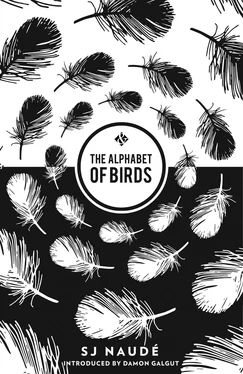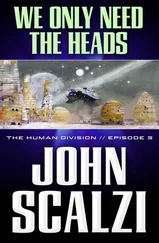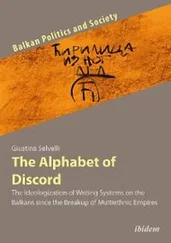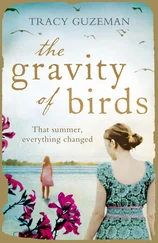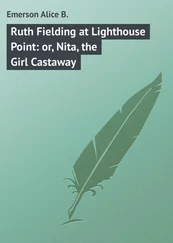Joschka came to cook for him in the winter darkness, in his spacious apartment in a converted warehouse on the Thames. Heavy Middle-European flavours floating through the spotless minimalism and out over the brown river: soups with dumplings, rabbit, schnitzels, liver. The clinical kitchen was being put to use for the first time since he had moved in. He could see that, for Joschka, it was a joy to have such a virginal kitchen to himself. Joschka was baking, his head bowed forward in concentration. He was caring for him. This was but one of Joschka’s faces, the man fixated on his cakes. There were several Joschkas: the careless one, the caring one, the baking one, the one with the velvet eyes who would sometimes simply disappear in the city, in the streets, for days on end, not answering his phone, who would thereafter sleep for two or three days non-stop before rising and appearing again, a little paler and leaner, but more glowing than ever. He did not ask Joschka questions about these absences. For reasons he cannot explain, it did not matter. There were few things about which they asked each other questions. That is how it was. Only in Berlin did he start gaining a better understanding of Joschka’s surrender to lost time, the vanished days.
‘Why do they not live in this part of the castle?’ he asks Joschka when Maximilian leads him out into the courtyard, where there is a patch of grass, dead flowerbeds and a deep well. ‘It looks quite liveable.’
‘There’s no heating,’ says Joschka, ‘and, apart from the antique toilet, no bathroom.’
The castle complex consists of several buildings from several periods. It is built in a ring and faces a courtyard garden. On the outside, the walls are thick and there are small windows overlooking the moat and the valley below. The family live in the smallest building, a nineteenth-century house with a steep pitched roof. A small place within a large place. Joschka’s brother-in-law works as an insurance broker, his sister as a nurse in the American army base nearby. Even though they live in this rambling place on a clifftop, they are like any German family in a cramped village house. There is a small backyard, just a shard of concrete above the abyss, enclosed with a wire fence. Inside is a Doberman. Through the fence it has a view over the valley. It barks at every movement below. Or, sometimes, for no apparent reason. The animal is sick, it seems. The ribs show, the tail remains tucked between its legs. Foam has dried around the mouth. Its bark is dry and raw.
Joschka’s mother calls and announces she is coming to visit. Joschka stiffens when his sister tells him. Tension descends over the house. It takes an hour before she arrives; she is coming from somewhere near the Czech border. A neighbour is bringing her.
‘I must warn you about my mom,’ says Joschka. ‘She is basically a tramp, a Landstreicherin .’
During the visit, the house is filled with uncomfortable silences and impenetrable dynamics. The woman is unkempt and short and wide. She does indeed look as if she sometimes roams the countryside, as if she is sleeping rough. He cannot but wonder how such an unattractive woman could have given birth to such a beautiful son. An alcoholic, that is clear, and perhaps on various kinds of pills too. Her speech is slurred, her dialect, Bavarian, is in any event too strong for him to follow properly.
After the visit, Joschka is visibly disturbed. They take Alice’s magic key and escape to the room in die Ruine , away from the little family, the little house. They stand in front of the small window, houses like toys in the valley below them.
‘Tell me about your mother.’
Joschka looks fleetingly at him and away again.
‘What’s there to say? She wasn’t a mother.’
Joschka says nothing more. He probes. Joschka shrugs his shoulders moodily.
‘It’s not an interesting story. Nothing new, nothing unusual.’
He goes on reluctantly. Almost from the beginning, she was alone with the two of them, his father having vanished early on. For as long as he can remember, she drank. His sister, just two years older than him, packed his schoolbag in the mornings and made breakfast. He recounts how his mother would often disappear, sometimes for weeks, how they had to make do on their own, had to ask neighbours for food, or his aunt in a neighbouring town. One evening, he continues, after she had been away for a week or so, he heard the front door opening. He jumped out of bed and there she was, in the corridor. He locked his arms around her waist, refused to let go. ‘Are you back now? Can you please never leave again?’ He made her promise, and she did, repeatedly. ‘I’m back. Here with you. Forever.’ She loosened his arms, put him to bed. He lay there, listening to her fussing in her room. After a while, just before dozing off, he heard the sound of the door-latch. A car engine. He jumped up, ran out. Too late: she was gone. She just came home to pack a suitcase. This time she did not return. For a month they managed on their own, but, in the end, when they ran out of food and there wasn’t a pfennig left in the house, they went to live with his aunt.
A call for him late afternoon on his cellphone. It is his own mother, from South Africa. He shifts from one corner of his mind to another, through all the rooms in between. His parents still live in South Africa, even though all their children have left the country. They own a farm there. An old family farm, inherited. They rarely go to the place nowadays; it is no longer safe. His mother harbours a deep nostalgia that nevertheless draws her back there. On the farm is a newer house, as well as a crumbling hundred-year-old farmhouse.
In front of the old farmhouse, next to the half-collapsed sandstone pergola, there grows an old crabapple tree that she remembers as a young tree, before the new house was built. She remembers the shade, has often told him how she played underneath it as a child. Now it is old, knotty. In summertime, when the fruit becomes too heavy to carry, branches tear and collapse in the dust, apple clusters and all. When he was young, apples were steamed and stewed for lunches in the new house. Sugar was added to counter the sourness. When served as part of a plate of food, it was brown, half-caramelised. Sweetly sour. Nowhere else has he ever encountered exactly such apples. When raw, they were inconceivably sour. One’s face involuntarily screwed up when you bit into it.
‘The tree is dying,’ she now says over the phone, ‘branch by branch.’
They took a cutting to a botanist, she explains, and he had never encountered the species. She is having it grafted. They are using the trunk of a hardened European apple tree. Notches will be cut into it and buds carved from the crabapple tree will be inserted. Then it will be wrapped in cloth, like dressing a wound with bandage. They will replant the new tree at the new house when the grafts have taken, when it starts budding with the new season’s blossoms.
‘Is that all you called to say?’
Usually she only calls when there is important news, whether good or bad. His parents are not of the Skype generation. Long-distance calls are not for conversation, but for conveying information. Sometimes more than one call is required, sometimes the ground has to be prepared first.
‘Yes,’ she says, ‘that is all.’ (He doubts it.)
The jump in his mind to South Africa is too great, too fast. He returns to Bavaria, to the Oberpfalz. To Joschka, of whom his mother has never heard and never will.
Joschka wants to cook a large dinner for them all. They are standing in Kaufland, a supermarket on the fringes of Nuremberg. It is the largest supermarket he has ever been in. The dairy products disappear into infinity. It is fresh and bright in here, like spring. Joschka looks intently at the refrigerated shelf, as if searching for an ingredient.
Читать дальше
